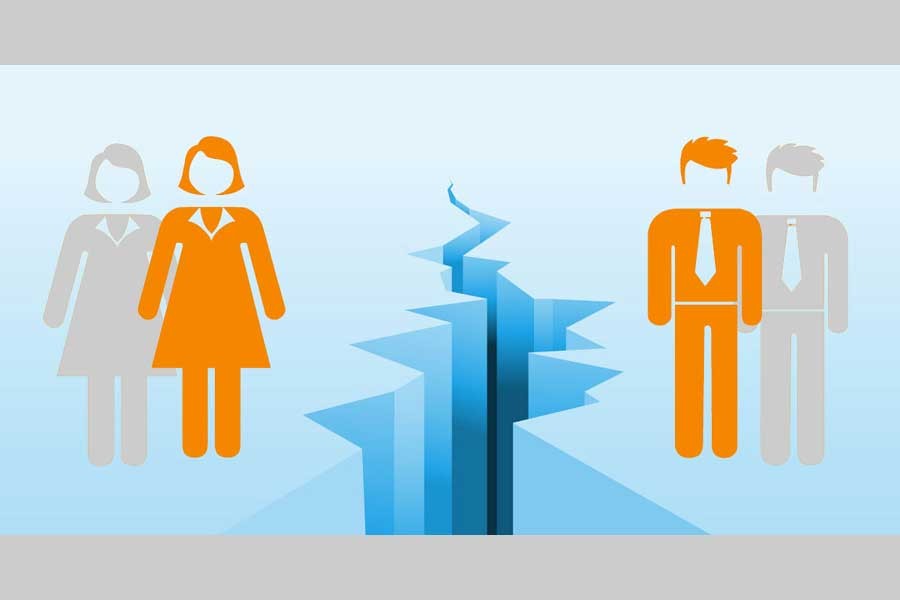The 2018 Global Gender Gap Report was released by the World Economic Forum (WEF), a Geneva based organisation, on December 18, 2018. While designed to increase better responsiveness about challenges of gender gaps, the WEF has reflected on 149 countries.
The global statement which is annually carried out by the World Economic Forum (WEF) was launched in 2006. It rests on four main thematic dimensions. These are: (a) economic participation and opportunity, (b) educational attainment, (c) health and survival, and (d) political empowerment.
According to WEF, after years of improvements in education, health and political empowerment, women have experienced falling representation in these vital areas in 2018. However, WEF finds that there had been some improvements in terms of wage equality this year compared to 2017.
While the gender gap is falling bit by bit, there is still a long way to go before economic and political equality is fully achieved. Thus the WEF report estimates that due to economic prospect and pay gap at current rate, it will take nearly 202 years for financial equality among men and women to be achieved around the world. Obviously Anna-Karin Jatfors, a regional director for UN Women, commented that "202 years is too long a wait" for achieving economic equality.
The WEF also estimated that it will take 107 years for the world to attain political equality. These are depressing facts for women across the world.
This year, yet again, the Nordic countries have led the top of the table. Iceland is commended as the most gender-equal country for the 10thconsecutive year followed by Norway, Sweden, and Finland respectively. On the other hand, amongst the world's 20 top economies, France performed the best, winning 12th place, followed by Germany in 14th, Britain in 15th, Canada in 16th and South Africa in 19th in the table.
Notably, all the high-ranking countries appraised by the WEF have one thing in common: they have not only politically incorporated gender equity principles but also embedded gender goals in their legislative policies and programmes, as well as in administration and private sectors.
According to the WEF, there has been "minimal progress" since last year's report in measuring economic participation and opportunity of women in the poorest performing countries in the Middle East and North Africa.
Klaus Schwab, the Executive Chairman of the World Economic Forum stated, "The equal contribution of women and men in this process of deep economic and societal transformation is critical." She also noted,"More than ever, societies cannot afford to lose out on the skills, ideas and perspectives of half of humanity."
Saadia Zahidi, the WEF's chief of social and economic programme has claimed, "The overall picture is that gender equality has stalled." She added, "The future of our labour market may not be as equal as the trajectory we thought we were on."
The good news is that Bangladesh could retain its top most position in South Asia in terms of maintaining gender equality and reaching 48th rank in the gender gap table. The WEF report also found that Bangladesh has closed over 72 per cent of its general gender gap while another South Asian neighbour Pakistan managed less than 55 per cent.
While the WEF statement praised Bangladesh in terms of political empowerment for "recording progress on closing its political gender gap" it also noted that the country is facing "a widening gender gap in terms of labour force participation", adding that inequalities there are mainly due to traditional social and gender norms.
The policy makers of Bangladesh cannot afford to be complacent about women's emancipation and equality issue. Not remaining self-satisfied with the present ranking of Bangladesh in South Asia, they should make concerted efforts to catch up with the top performers of the world.
Though the Bangladesh Constitution recognised equal rights for women and men in all spheres of the state and public life, they are still marginalised and discriminated as the declarations of the Constitution have not been fully implemented.
Most analysts believe, since women constitute about half of Bangladesh's population (49. 56 per cent), without their active participation and empowerment, the country will never be in a position to compete with the top gender-equal countries of the world. Therefore, the government and agencies responsible for ensuring women's equality must take tangible steps, set future targets and implement awareness programmes to close gender gap to bring up rapid socio-economic and political transformation in the country. For that, Bangladesh government needs to urgently adopt and efficiently implement an inclusive gender equality strategy.
Dr. Kamal Uddin Ahmed is a former Professor and Chairman, Department of Political Science, University of Dhaka.


